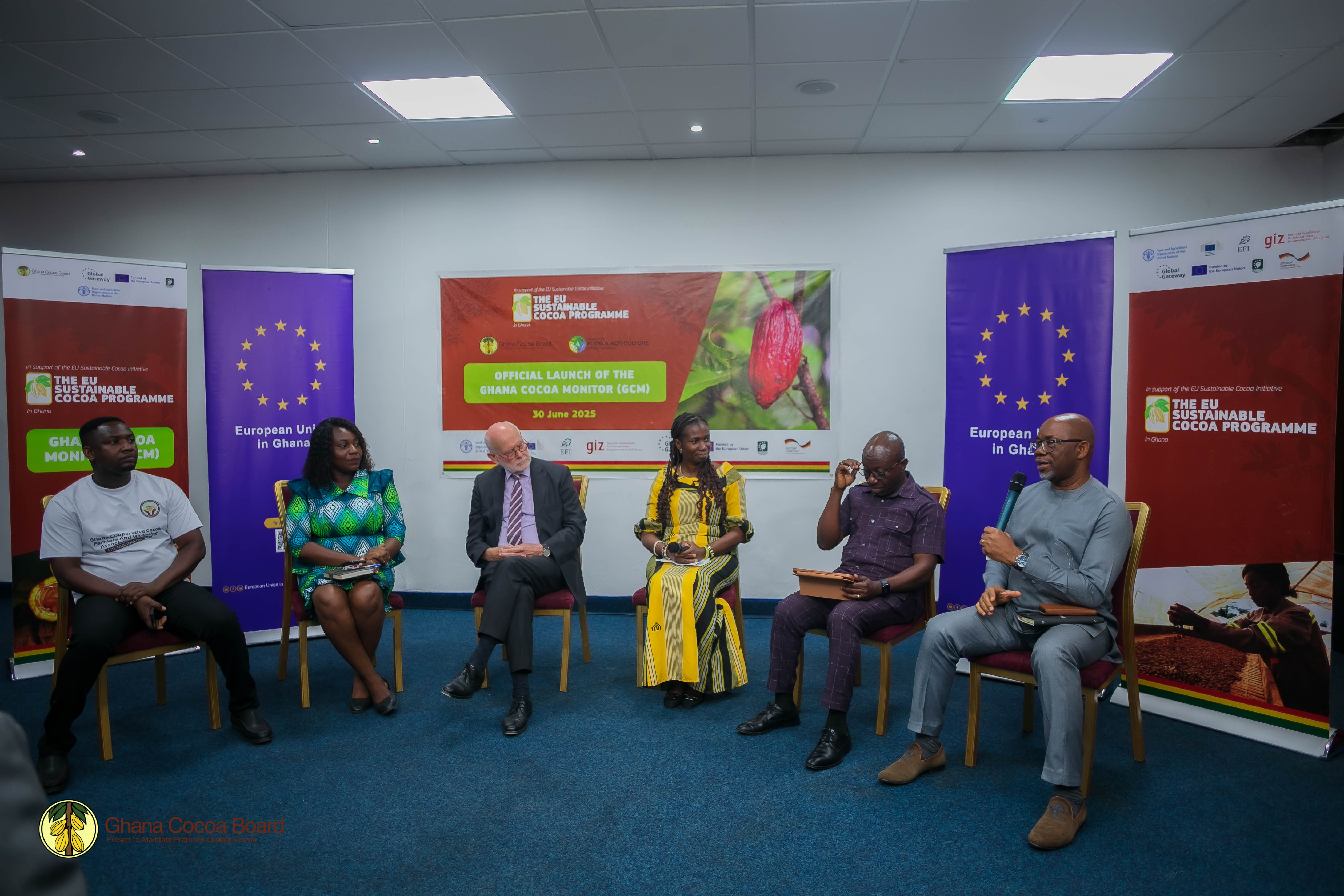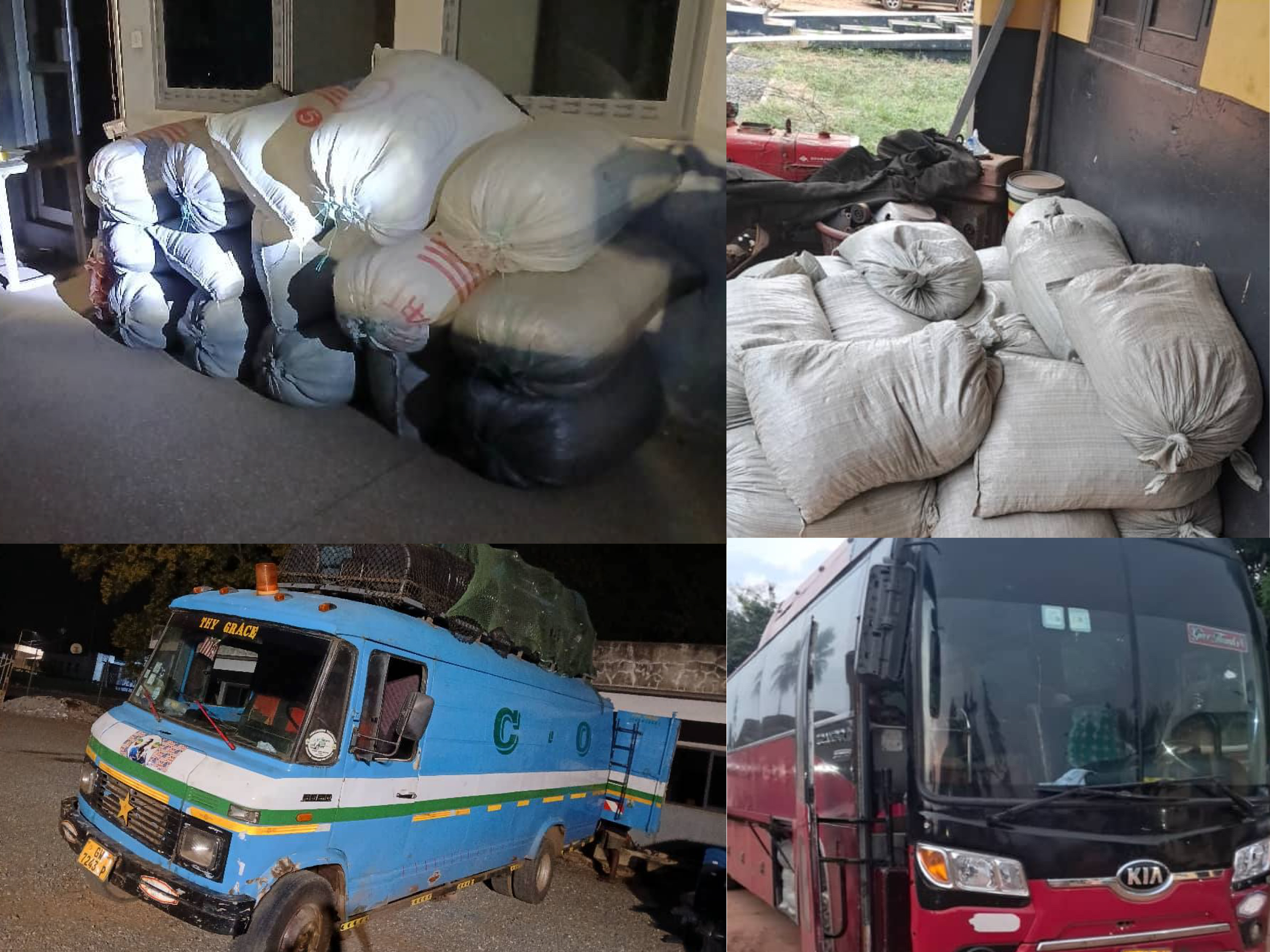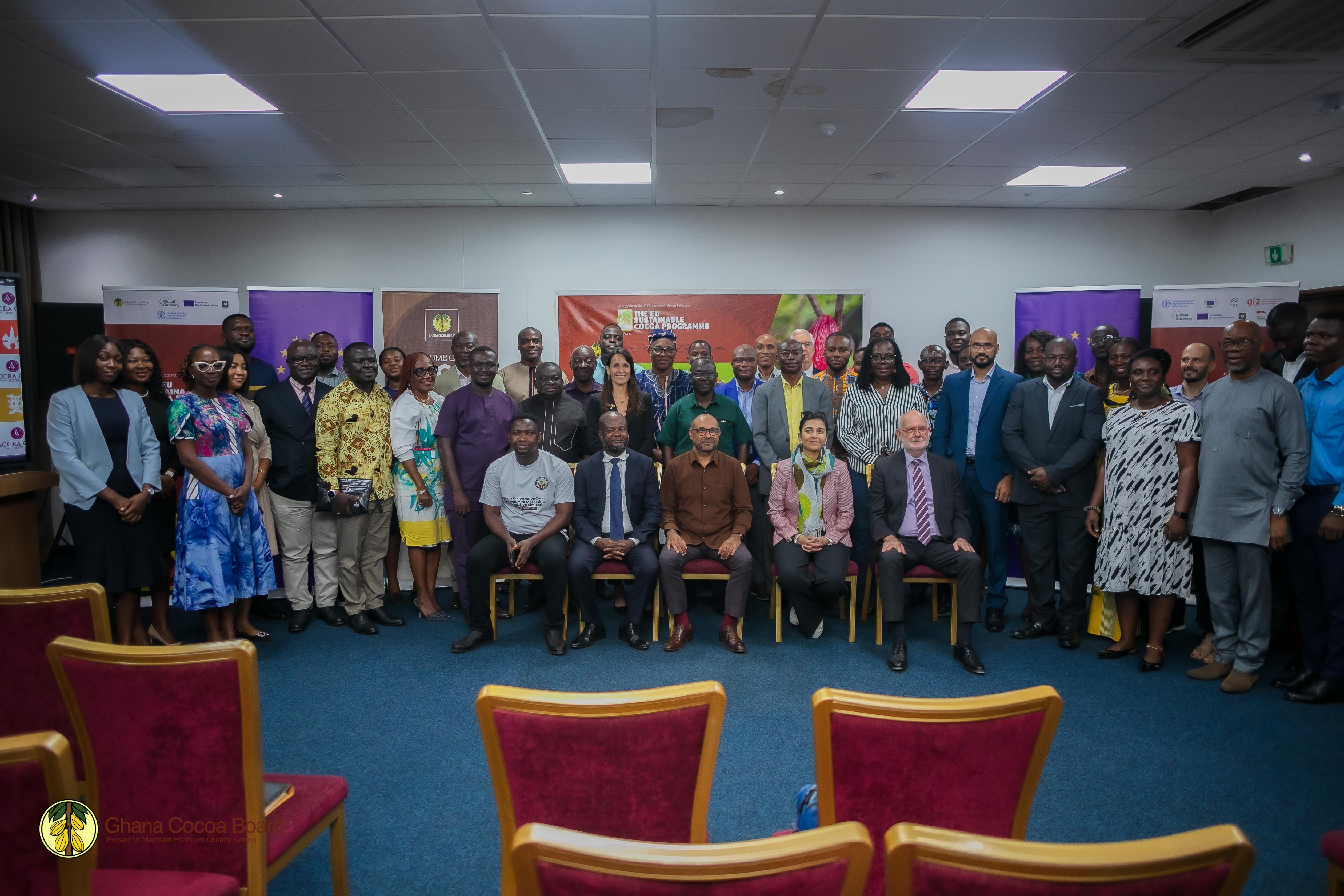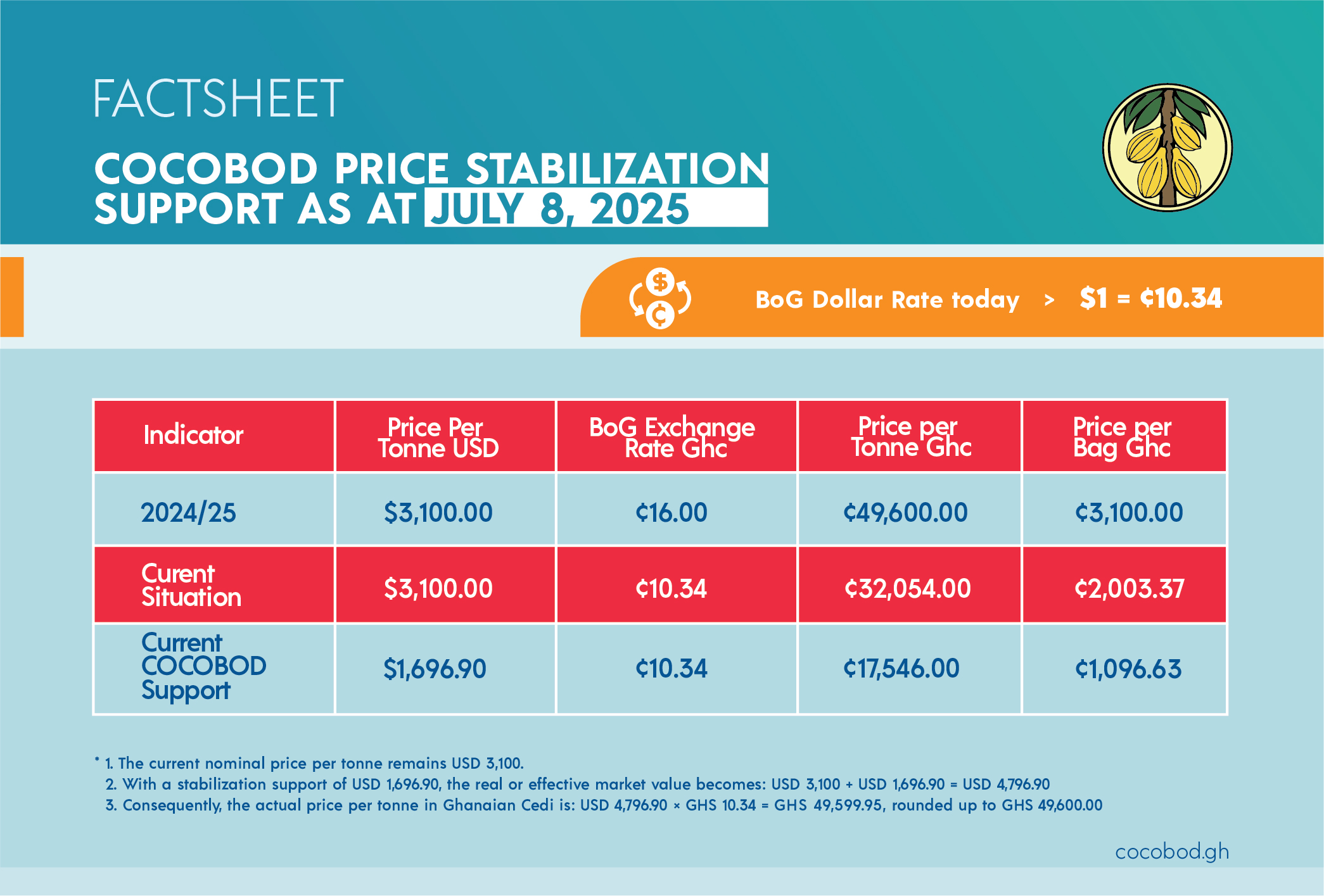THE COCOA MONITOR PLATFORM: ADVANCING TRANSPARENCY AND ACCOUNTABILITY IN GHANA’S COCOA INDUSTRY

Date: 16th July 2025
Ghana’s cocoa industry remains one of the most important sectors of the national economy, providing livelihoods for millions of farmers and contributing significantly to foreign exchange earnings and improving the country’s development agenda. However, in recent years, the cocoa sector and all actors along the value chain have faced growing pressure both domestically and internationally to address long-standing challenges such as child labour, environmental degradation, poor traceability, better producer prices for cocoa farmers to improve their livelihood and lack of accountability across the cocoa value chain.
As the regulator of Ghana’s cocoa sector, the Ghana Cocoa Board (COCOBOD) has, over the years, addressed these challenges with the support of the Government, international agencies, financial institutions, and other partners. This has been achieved through the implementation of targeted policies, advocacy initiatives, sensitisation campaigns, and various strategic interventions aimed at mitigating the sector's most pressing issues.
In response to growing concerns and as part of a broader effort to modernise the cocoa sector, the Ghana Cocoa Board (COCOBOD) launched the Ghana Cocoa Management System (CMS), a comprehensive digital platform designed to improve efficiency, transparency, and sustainability across the industry. The CMS serves as the backbone for traceability and sector-wide accountability, enabling the systematic registration of cocoa farmers, mapping of farms, and monitoring of production activities.
Building on these digital reforms, and in a continued effort to enhance transparency and compliance, COCOBOD introduced the Ghana Cocoa Traceability System (GCTS) in 2023. This initiative specifically aims to align Ghana’s cocoa supply chain with evolving international standards, particularly the European Union Deforestation Regulation (EUDR). The EUDR mandates that every cocoa sold in the EU market must be traceable to its source, deforestation-free and child labour-free, thus enforcing producing countries to adopt robust tracking and reporting mechanisms.
These policies and programmes rolled out are geared towards ensuring that the cocoa sector is cleaned up of all activities that undermine the progress of the industry and improve the livelihoods of cocoa farmers.
In what looks more like the latest addition to the many pragmatic programmes to support industry growth, the introduction of the Cocoa Monitor Platform has come as a novel policy response inspired by concerns from industry stakeholders, aimed at improving and sustaining the cocoa sector while attracting more investment and encouraging youth participation in cocoa farming
Still, in an effort to modernise the cocoa sector, the COCOBOD, in collaboration with the European Union (EU), the Food and Agriculture Organisation (FAO), and other development partners, has launched the Cocoa Monitor Platform a state-of-the-art digital tool designed to promote transparency, accountability, and sustainability within Ghana’s cocoa industry.
The Cocoa Monitor Platform is rooted in collaboration by bringing together stakeholders from the government, private sector, civil society organisations, and cocoa farmer associations that provide a shared space for tracking and analysing data that reflects the realities of cocoa farming across the seven (7) cocoa regions. This includes information on land use, farm ownership, supply chain actors, child labour risks, and deforestation hotspots.
Such a multi-stakeholder approach allows for collective problem-solving and policy alignment. It enables institutions to respond proactively to compliance demands, particularly from international markets and ensures that decision-making is informed by evidence rather than assumptions.
One of the most significant global developments impacting the cocoa trade is the introduction of the EU Deforestation Regulation (EUDR), which mandates that commodities such as cocoa be traceable to their origins and free from deforestation. The Cocoa Monitor Platform directly supports Ghana’s ability to meet such requirements by offering digital traceability from farm to port.
Riding on the Cocoa Management System platform, the monitor will create an auditable record of cocoa production, providing credibility on the global market, paving the way for better trade terms, premium payments, and stronger buyer confidence to the benefit of cocoa farmers and all industry players along the value chain.
The Cocoa Monitor Platform will also empower cocoa farmers through access to verified data, farmers will understand their rights, land tenure status, and access to support services such as inputs, training, and finance. Also, offering insights into climate-smart farming practices encourages environmental stewardship through monitoring of forest cover and land-use changes.
With greater visibility into the system, cocoa farmers can hold institutions accountable and participate in the governance of the industry, a shift from a top-down model to a more inclusive and participatory approach to sector management.
Conclusion
While the Cocoa Monitor Platform is still in its early implementation stages, its potential impact is profound. It lays the groundwork for a future where cocoa production in Ghana is not only economically viable but also socially responsible and environmentally sound.
Sustaining this progress will require continuous investment in digital infrastructure, farmer training, and data governance. More importantly, it demands unwavering political will and cooperation among all players in the value chain.
The Cocoa Monitor Platform is more than a technological innovation, a strategic instrument for reform. By advancing transparency and accountability, it positions Ghana’s cocoa sector to thrive in an increasingly demanding global landscape while protecting the interests of cocoa farmers, along with all stakeholders.
By Kojo Asante, Public Affairs
Other News / Articles you might be interested in.

ANTI-COCOA SMUGGLING TASK FORCE FOILS MAJOR SMUGGLING ATTEMPTS
The relentless efforts of the Anti-Cocoa Smuggling Task Force, in collaboration with the ...
Read More
GHANA COCOA MONITOR LAUNCHED
The Ghana Cocoa Board (COCOBOD), in partnership with the European Union (EU), the ...
Read More
FACTSHEET: COCOBOD PRICE STABILISATION SUPPORT - 8th JULY 2025
1. The current nominal price per tonne remains USD 3,100.2. With a stabilization support of ...
Read More